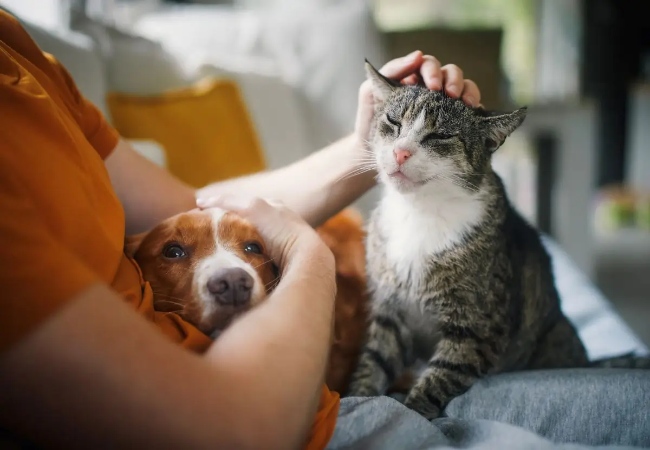Do Dogs and Cats Grieve in 2025? Vet‑Approved Insights into Pet Bereavement 🐾💔

In this article
Do Dogs and Cats Grieve in 2025? Vet‑Approved Insights into Pet Bereavement 🐾💔
By Dr. Duncan Houston BVSc
💔 Understanding Pet Grief
Dogs and cats form deep social bonds—not just with humans but with other animals. When they lose a companion, many display grief-like behaviors. While we can’t know their exact emotions, scientific observations show clear signs they’re affected.
🔍 Common Grief Signals
- 😔 Reduced eating or drinking (about 30–35% of pets) and slower eating
- 🛌 Sleeping more—or less than usual—alongside restlessness
- 🗣️ Increased or decreased vocalizing—meowing, barking, whining
- 💞 Clinginess and seeking attention (seen in ~60%)
- 🏠 Revisiting the deceased companion’s favorite spots
- 🚨 Changes in grooming, litter box use, or even aggression or hiding
🥺 Dogs vs. Cats: Different Needs
Both experience grief, but may display it differently:
- Dogs often seek more comfort, follow scent trails, and show anxiety when left alone.
- Cats may withdraw or vocalize more. Recent studies show signs like appetite loss, sleep changes, and social withdrawal—especially when bonded closely with the lost companion.
🕊️ Why Pets Seem to Grieve
- They form attachment bonds within the family unit
- They sense emotional changes in us, mirroring our grief and routine disruptions
- Studies on elephants, primates, and wolves show grief is a shared mammalian trait—our pets likely experience facets of it too.
🛠️ Supporting a Grieving Pet
- 🤗 Maintain routines—feeding, walking, playtime—for comfort and predictability.
- 👍 Provide extra attention—snuggles, petting, quiet time—to ease anxiety.
- 🧷 Let them scent the body (if appropriate)—closure may reduce searching behavior.
- 🧩 Encourage mental stimulation—puzzle toys or new toys help prevent withdrawal.
- 🧼 Use comforting items—keep the deceased pet’s blanket or bed nearby for scent reassurance.
⚠️ When to Seek Extra Help
If signs persist—like full appetite loss, extended lethargy, or harmful behaviors—consult your veterinarian. They can rule out medical causes or recommend behavior support or temporary supplements.
🌱 Healing Together
Give everyone—pets and people—time to adjust. Realize grief can take weeks or months. Honoring your pet’s grief by offering empathy and gentle care helps rebuild balance and connection in your family.
🔚 Final Thoughts
Yes—dogs and cats do grieve. They rely on family bonds and routine, and they respond to loss in ways that resemble human sorrow. With mindful support, structure, and emotional care, most pets gradually regain their well-being. Love, time, and understanding are their greatest healers ❤️🐾.






